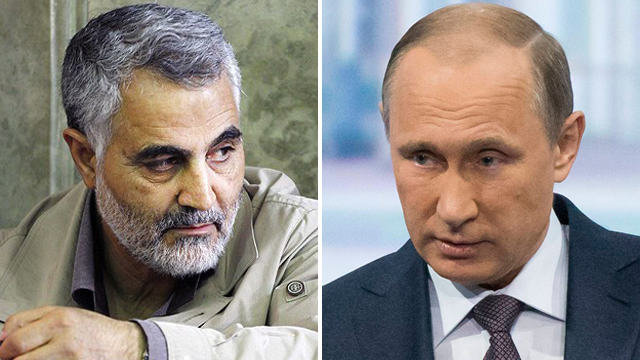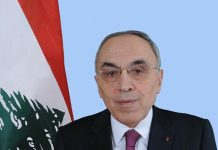Resolving the Syrian Dilemma
Ali Ibrahim/Asharq Al Awsat/September 15/15
Few would have expected the Syrian crisis to continue into a fifth year, when it has now become an open arena for extremist organizations while at the same time becoming the scene of a proxy war between the United States and Russia. Both have been indirectly involved in the conflict—in stark contrast to Iran which has been playing a direct role in addition to its support for the Assad regime. The situation has now become incredibly complex for the foreign players involved. It has morphed into a crisis not just of military conflict, but also one involving the tens of thousands of Syrian refugees who have landed on Europe’s shores, having braved a perilous and life-threatening journey in smugglers’ boats to cross the Mediterranean and reach the continent.
At the same time, the world is casting worried glances at Syria, fearful of the extremist organizations currently operating there and intent on exporting terror to the rest of the region and the world. Syrians are now facing two stark choices, each one worse than the other: the Islamic State of Iraq and Syria (ISIS) or the Assad regime. And so thousands have chosen to make the journey across the sea, with all its accompanying dangers, in order to start a new life far away from the madness of ISIS and the oppression of the regime. But civil wars are like raging fires that initially consume themselves and everything around them, only to die down eventually, leaving behind their ash and embers as a reminder of the destruction they have wrought. One day this crisis will end, but the losses will be irreversible. Half the Syrian population is already displaced, and whole cities have been destroyed along with priceless historical treasures which have stood for thousands of years, only to meet a fate similar to the giant statues of the Buddha in Afghanistan’s Bamyan Valley. Those statues were destroyed by this age’s new Mongols, who find in reducing such treasures to rubble a source of pleasure and a way to sate their destructive impulses.
How will this crisis end? How will this dilemma be resolved? The two major sides in the conflict are both extremists, and the moderate opposition is currently completely impotent and has not been able to convince foreign players to arm them in any effective way. Meanwhile, the Assad regime is receiving very public support from Moscow, which has said it will continue to support the regime as it is the only power in Syria capable of fighting the terrorist groups currently swarming there. Moscow’s recent comments that it will continue to arm the Syrian regime as well as reports that Russian military advisers are present in Damascus suggest the conflict will escalate to a new level. Another point of view, however, may see that such revelations and comments are a way for Moscow to show it has interests in Syria and send a clear message to the other parties that when the time comes for negotiation those interests cannot be taken lightly.
This points to a situation which could perhaps be summed up by the Arab saying, “When the crisis intensifies, its resolution follows. This point of view is supported by the consensus that neither Washington nor Moscow will ever put boots on the ground in Syria and engage in any kind of direct confrontation, especially considering this never happened during the Cold War or even during a confrontation such as the Bay of Pigs Invasion in the 1960s. This Russian involvement, which many contend will intensify the conflict and add fuel to the fire, coincides with the refugees crisis which has now caused some European countries to reintroduce border controls in order to deal with the influx. All this lends credence to the idea that the hour for negotiation is approaching. And when the table is set and all the chairs put in place all sides must be ready, so that solutions which disregard the region’s interests are not implemented. Talk of sides here does not at all refer to ISIS and its ilk, for these are temporary players whose role in the conflict has come to an end.
Report: Iranian commander makes second Moscow visit
Roi Kais/Ynetnews/Published:09.15.15,
Alleged meeting suggests increased efforts by Russia and Iran to coordinate support for Bashar Assad’s government, as Moscow sends military advisers to Syria and builds temporary housing. Qasem Soleimani, commander of the Iranian Revolutionary Guards’ elite Quds Force, has visited Moscow for the second time, Lebanese newspaper As-Safir reported on Tuesday. According to the newspaper, the alleged meeting occurred last week. The newspaper did not specify whom Soleimani met in Moscow. Soleimani is believed to coordinate the Iranian campaign against ISIS and other groups in Iraq and Syria. He is subject to a UN travel ban.
The Lebanese publication speculated that the visit involved Russian-Iranian efforts to coordinate actions in Syria. This report follows a senior Israeli security source’s claim that Soleimani recently sent hundreds of Iranian soldiers to fight rebels in Syria. According to this source, Iranian forces are fighting alongside Hezbollah for the city of Zabadani in southwest Syria, not far from the Lebanese border. The only Iranian forces known to be active in Syria until now were the Basij, a paramilitary group. Regarding reinforcement of Iranian troops, the Israeli source said that “this is being done in light of Assad’s desperation and with Iranian-Russian coordination, following Soleimani’s meeting with Russian President Vladimir Putin.”
Following Soleimani’s alleged earlier visit to Moscow, a Iranian source reported that the commander had arrived in Russia to discuss transfer of advanced S-300 missiles to the Islamic Republic. Russia and Iran have a shared interest in supporting Syrian President Bashar Assad as much as possible. The New York Times reported last week that Russia has been building a secret base in Syria and sent a delegation of military advisers. It was further reported that Russia had brought temporary housing units to the port city of Lattakiya, capable of housing up to 1,000 advisers and other military personnel.
The report claimed that while there was no indication that Russia intends to deploy significant ground forces in Syria, the base could be used to transfer military equipment or as a launching pad for airstrikes. Russia is one of Syria’s only international allies, along with Iran and Hezbollah. A few days after the New York Times report, the Russian Foreign Ministry confirmed for the first time that Russian military experts were in Russia. Also Tuesday, Russian President Vladimir Putin strongly defended Moscow’s military assistance to the Syrian government, saying it’s impossible to defeat the Islamic State group without cooperating with Damascus.Speaking at a meeting of heads of states at a Moscow-dominated security alliance of ex-Soviet nations in Tajikistan, Putin urged other nations to follow Russia’s example and offer military support to Assad’s government.
“We are supporting the government of Syria in the fight against a terrorist aggression, are offering and will continue to offer it necessary military-technical assistance,” Putin said in televised remarks. “Without an active participation of the Syrian authorities and the military, it would be impossible to expel the terrorists from that country and the region as a whole, and to protect the multi-ethnic and multi-confessional Syrian people from destruction.”
He said that Assad was ready to conduct political transformations and engage a “‘healthy part of the opposition,” but added that “pooling forces in the fight against terror takes the priority now.”Putin shrugged off allegations that Moscow’s support for Assad has sparked a flow of refugees, saying that without Russia’s support for Assad’s regime the number of Syrian refugees heading to Europe would have been even bigger.”People are fleeing Syria primarily to escape fighting that has been fueled from the outside with supplies of weapons and hardware, they are fleeing to escape terrorist atrocities,” he said. “Without Russia’s support for Syria, the situation in the country would have been worse than in Libya, and the flow of refugees would have been even bigger.”The Russian leader is set to address the Syrian crisis when he speaks to the UN General Assembly later this month, and observers in Moscow believe he wants a Russian military force on the ground to be ready by that time.
The Associated Press contributed to this report.



















